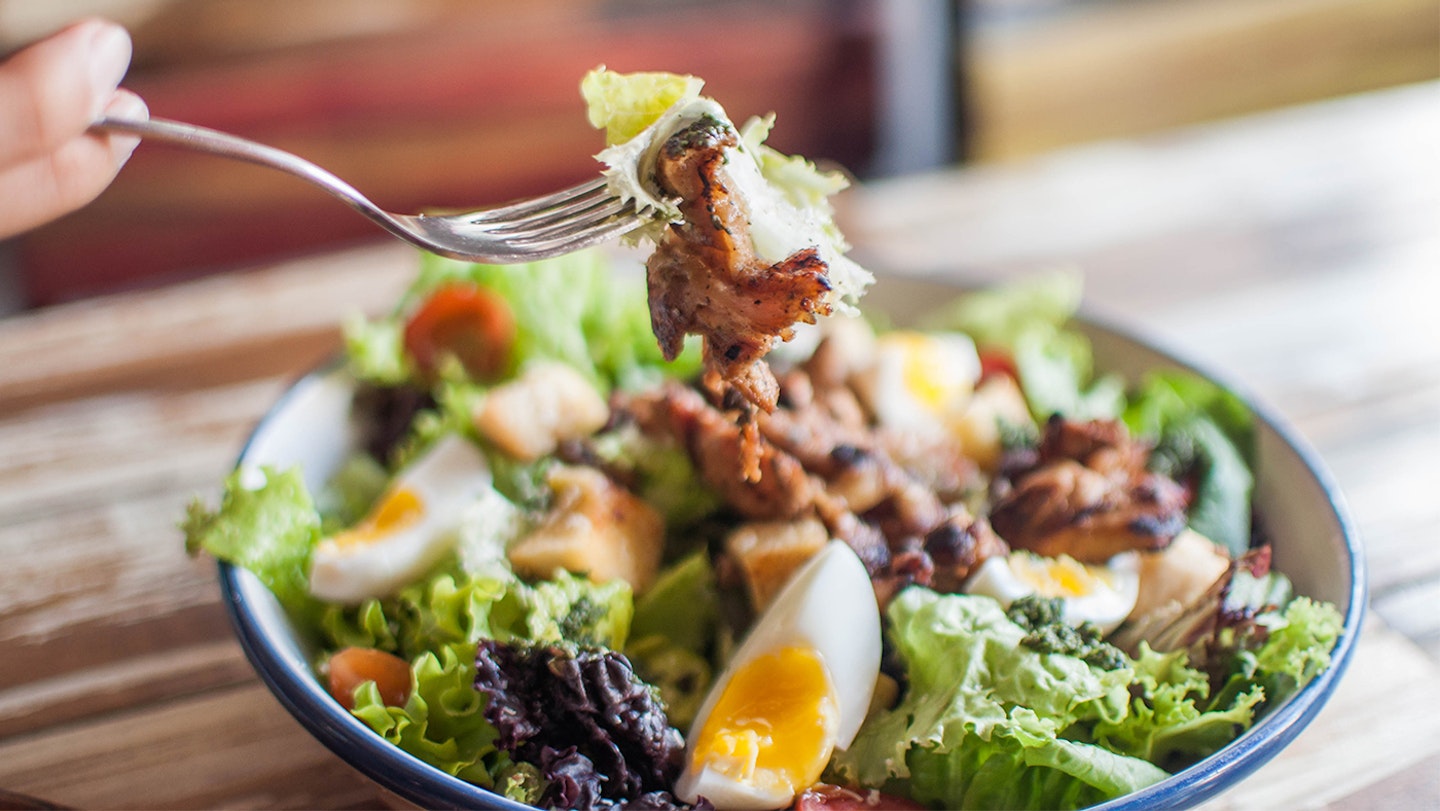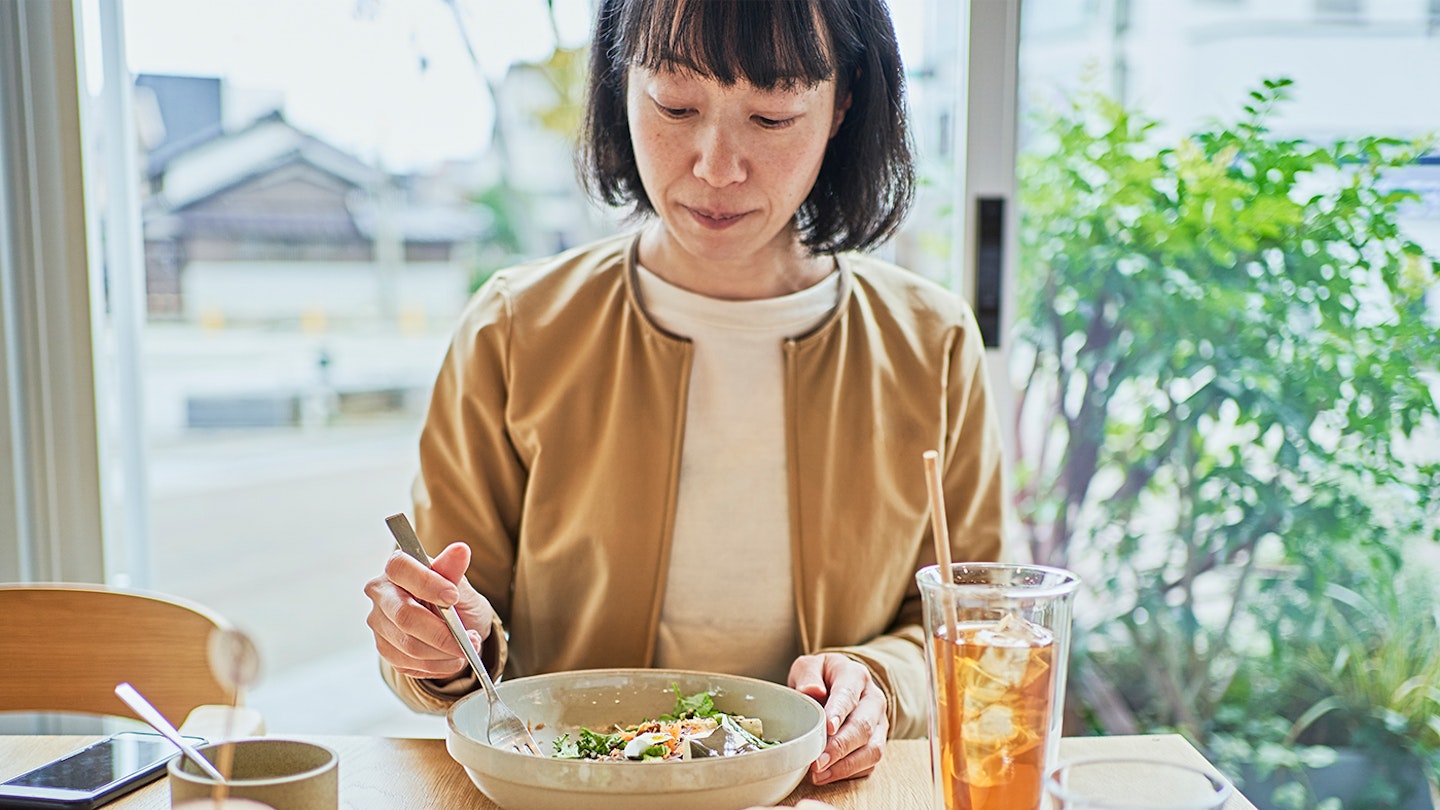Menopause is a time that brings many changes for women. Just like puberty, hormone levels alter over a period of time and can result in an array of symptoms and alterations to our bodies.
As well as issues like hot flushes, tiredness, low libido and brain fog, as our oestrogen levels naturally decline, we can find that weight gain becomes an issue, especially around the middle.
Now, to be more specific, what occurs is an increase in body fact and a decline in muscle mass. That’s why it’s important to try and boost your metabolism and either continue or begin weight training for women over 50.
It’s also important to pay attention to what foods you eat. To be very clear – you should not be starving yourself or punishing yourself if you have a glass of wine or a piece of cake. As a personal trainer with many years specialising in peri and post-menopausal women, I always tell my clients to aim for about 80% consistency.
What counts is not what we eat at Christmas, or on a night out with friends, but rather the accumulation of what we eat on a more or less daily basis.
Some foods can be highly beneficial, not only for easing menopausal symptoms but also for giving us more energy, helping us preserve our muscle mass and improving our long term health.
I spoke to Michaella Mazzoni, a registered nutritionist who specialises in female health, to find out what foods we should eat and what we should avoid (and thank goodness she didn’t say cake).
What food and drink should I have for menopause?
When it comes to an overall 'diet’ for menopause – and I mean foods you eat, not diet for menopause in the restrictive sense – a Mediterranean approach is useful. This is a diet that focuses on vegetables, fruits, whole grains, healthy fats such as nuts and olive oil and lean protein like chicken, fish and eggs.
"There's not one perfect diet for everyone, but the Mediterranean diet ticks a lot of boxes for a lot of different people," Michella says. "It's quite heart friendly, and there's a lot of good support around the brain health and bone health to consider too."
Protein is of particular importance as it's the building block of muscle. It also fills us up, so we’re less likely to snack on processed foods.
It’s important not to cut any food groups, such as carbs or dairy, as these provide important nutrients and vitamins such as Vitamin D. Carbs give us energy and if you’re anything like me, you'll be needing all the help you can get! However, as we age, we need fewer carbs (but not none at all) and more protein.

What should I avoid?
“A lot of food gets demonised,” Michaella says, “and we have so much pressure on us already to look a certain way that we don't also then need to be worrying about if you are allowed to eat a banana or not. That's really stressful and not good for our mental health. So instead, I would be thinking about what different foods can do for you and using them like that.”
That said, it’s advised to try to limit your intake of alcohol and caffeine, as these have been shown to increase risk of hot flushes, as well as cause issues with sleep quality and duration. But as Michaella points out, it’s not realistic to ask or expect people to eliminate these altogether:
“Most people do have bit of alcohol in their diet. So like with anything, I would say, ‘Okay, we'll look at the different potential health benefits within alcohol and pick which one is maybe the best for you.’ So in the case of alcohol, I normally recommend, if people are going to drink that, they drink red wine, and within that that they drink a variety called Pinot Noir, because that's got the highest number of antioxidants and the lowest number of tannins.
And then if you are going to drink, try to only have one or two glasses per week, ideally on a weekend, and drink one glass of water per glass of wine that you have.”
Minimising foods and drinks containing higher levels of added sugar as well as processed foods can help with better blood sugar and insulin control, helping to reduce the risk of type 2 diabetes and/or weight gain.
Trying to reduce added salt can also be beneficial, as a high salt intake has been associated with lower bone density in perimenopausal women. And with the decline in oestrogen during menopause, this can increase the risk of developing high blood pressure itself. Alongside this, Michaella recommends limiting red meat consumption to once or twice per month.
What food helps menopause symptoms?
As previously mentioned, protein can help us maintain our muscle, something that can otherwise diminish as our estrogen levels decline. Michaella suggests opting for a high protein breakfast and leaving carbs for later in the day:
"If we're thinking about an amount of protein, be aiming for around about 20 grams at breakfast," she says. "Maybe two eggs or something like that. Save the higher carb foods for later on in the day. That definitely doesn't mean you can't eat carbs, because they're really important for lots of different things, but focus more on fats and proteins at breakfast."
"Omega three fatty acids are really important for hormonal health and useful during that post menopausal time," Michaella continues. These can be found in oily fish such as salmon or mackerel, as well as nuts, seeds and oils.
"Another food which is quite helpful are flax seeds, which are phytoestrogens, so they can interact with the estrogen receptors," Michaella says. "The estrogen receptors stay open for about 10 years after you've finished menopause, but if you have a personal history with a hormone dependent cancer, then it's best to avoid them."
Finally, I'd advise you to focus on eating a range of fruits and vegetables in your diet for menopause, as these offer so many vitamins, macro and micronutrients that they'll keep you fighting fit.
Michaella Mazzoni is a registered BANT nutritionist, offering private consultations, testing, meal planning and workplace wellbeing. She has been featured as a nutritional expert in many national media outlets and is now lending her expertise to Yours.
Becky Fuller is a senior digital writer for Yours.co.uk. She is also a fully qualified personal trainer and strength coach, specialising in fitness and wellbeing for over 50s. Prior to joining Yours, Becky was a fitness writer for Saga, and a freelance entertainment and theatre journalist. Becky is passionate about helping people to move well and discover the many benefits of strength training.
